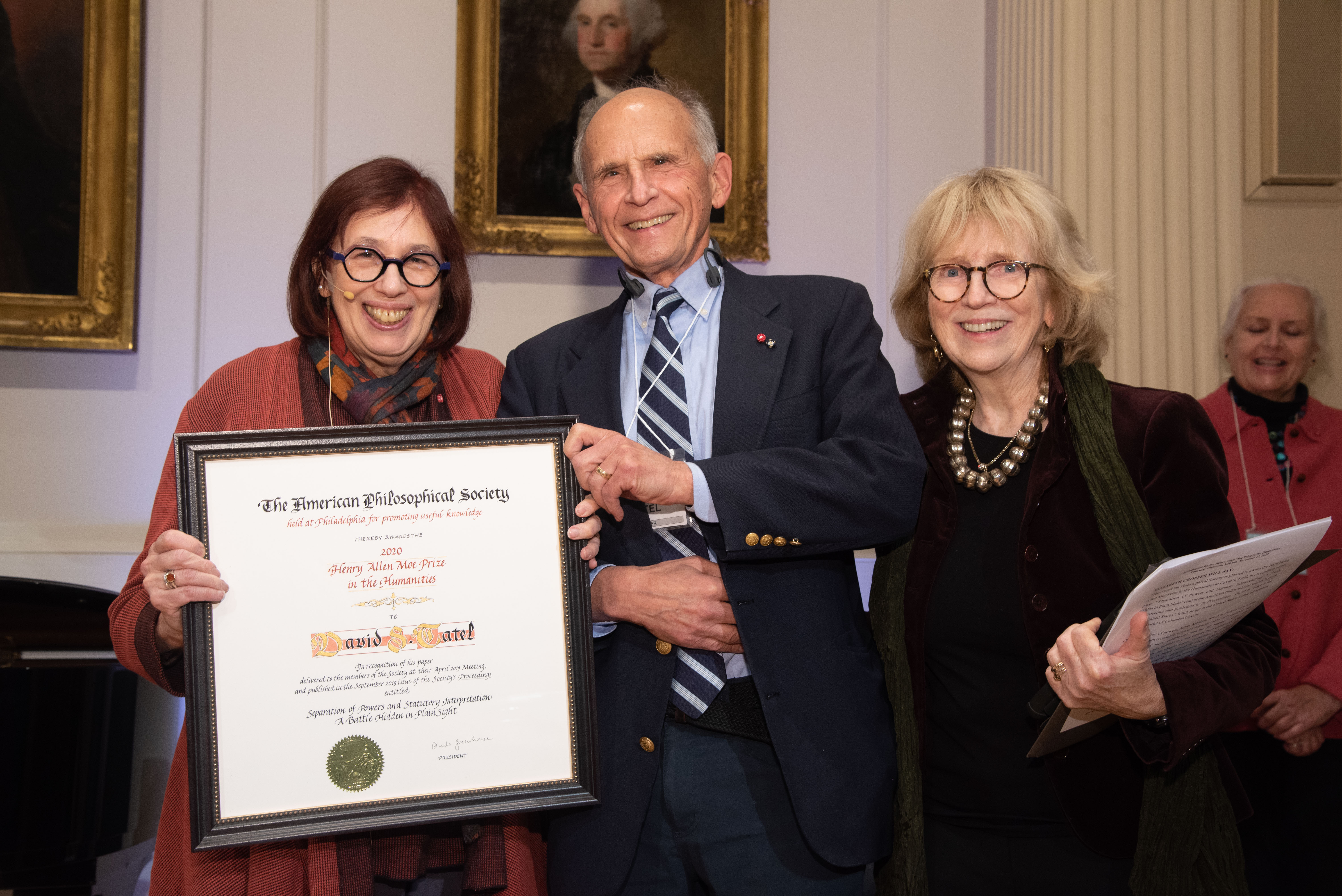2020 Henry Allen Moe Prize

The recipient of the 2020 Henry Allen Moe Prize is Judge David S. Tatel in recognition of his paper “Separation of Powers and Statutory Interpretation: A Battle Hidden in Plain Sight” read at the American Philosophical Society’s 2019 April Meeting and published in its Proceedings Volume 163, Number 3, September 2019. David S. Tatel is the Senior United States Circuit Judge, United States Court of Appeals for the District of Columbia Circuit. The 2020 Moe Prize was presented at the Society's November 2022 Meeting.
Of the separation of powers, James Madison wrote in Federalist 47: that “No political truth is certainly of greater intrinsic value, or is stamped with the authority of more enlightened patrons of liberty.” With this constitutional principle, instilled in every citizen from childhood, Judge David S. Tatel opens his elegant paper “Separation of Powers and Statutory Interpretation: A Battle Hidden in Plain Sight.” Declining political debate, Judge Tatel guides the reader succinctly through the arcane thicket of statutory interpretation. Unpacking the significance of the 1984 Supreme Court Chevron decision (more often cited than understood), he explains that it is not the decision itself which is of the greatest importance (although he does explain its impact), but rather the way that the “Chevron two-step” has brought about the passage of decision-making power, in effect law-making powers, to a vast range of Federal government agencies. Scrupulously avoiding interpretive partiality, Judge Tatel presents a model argument that is clear, logical, and compelling. He expresses some real concern that this transfer of power has considerably expanded the regulatory powers of new parts of the government well beyond anything envisaged by the Framers of the Constitution. Such concern has been expressed in several Supreme Court decisions summarized here by Judge Tatel, but these have not yet amounted to a redress of the balance of authority among Congress, the courts and the agencies. This deft and plain spoken, yet subtle essay instructs the citizen reader on the often hidden, prolonged constitutional debate over the extent to which important and regular aspects of the lives of Americans are governed not by the executive branch (directly, at least), by their elected representatives, or even by the courts. Hidden in plain sight, in Judge Tatel’s words, is the continuing struggle “to keep our three branches of government ‘separate and distinct.’”
Established in 1982 by a gift from the widow of Henry Allen Moe to honor the longtime head of the Guggenheim Foundation and president of the American Philosophical Society from 1959 to 1970. It pays particular tribute to his firm commitment to the humanities and those who pursue them. The Moe Prize is awarded annually to the author of a paper in the humanities or jurisprudence read at a Meeting of the Society.
The selection committee was Elizabeth Cropper, chair, Dean Emerita, Center for Advanced Study in the Visual Arts, National Gallery of Art; Michael McCormick, Goelet Professor of Medieval History, Harvard University; and Brent D. Shaw, Andrew Fleming West Professor of Classics Emeritus, Princeton University.
